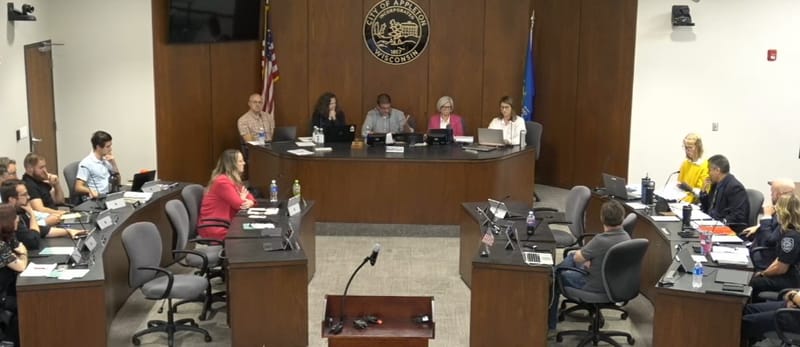AB24 full of vague and ominous language, witnesses testify
What this all means is a person doesn’t have to be convicted, merely accused, of a crime to invoke ICE.
The devil is, once again, in the details when it comes to Republican-sponsored legislation in the Wisconsin state house.
Republican Speaker of the Assembly Robin Vos is claiming that a GOP immigration bill (AB24) should have bipartisan support because polls show that “83 percent of adults support deporting immigrants who have committed a violent crime.” Senator Julian Bradley, the bill’s co-author, argues that the bill only affects “individuals who are here illegally, who commit felonies”.
And yet the language of the bill suggests otherwise. It would require sheriffs to request proof of legal presence status “from individuals held in a county jail for an offense punishable as a felony.”
Such vague language opens the door to a person being detained simply on accusation of a felony. If legal status cannot be verified, the sheriff must immediately inform the Federal Department of Homeland Security and comply with detainer requests from the U.S. Immigration and Customs Enforcement (ICE).
The American Civil Liberties Union (ACLU) testified against the bill with concerns about increased racial profiling and denial of due process. The bill fails to identify a timeframe for providing proper documentation of legal status and requires immediate notification of ICE should documentation not be obtained. A detained person invoking their 5th amendment right or who does not have identification on their person at that moment could result in immediate notification of ICE.
What this all means is a person doesn’t have to be convicted, merely accused, of a crime to invoke ICE. In testimony, the ACLU cited Former Executive Director of ICE’s Office of State and Local Coordination Jim Pendergraph’s ominous statement: If you don’t have enough evidence to charge someone criminally but you think he’s illegal, we can make him disappear.
The Wisconsin Council of Churches also spoke against AB24, expressing concerns about the legislation’s presumption that “someone’s inability to immediately document their status means they are unworthy to be among us, and only worthy of removal.”
Other constituents testifying against the bill worried that victims of a crime may be afraid to report that crime due to their legal status (or ability to prove legal status). This bill might cause immigrants (regardless of legal status) to fear their own community, they argued, or being racially profiled and detained while at the grocery store or bank.
Republican committee members seemed unmoved by the testimony, arguing that the bill applies only to those being detained in a jail. Yet the net effect of even that language can wreak havoc in a community, the witnesses argued.
AB24 on its own is only one piece of the anti-immigration agenda. The Laken-Riley Act requires ICE to “detain certain non-U.S. nationals (aliens under federal law) who have been arrested for burglary, theft, larceny, or shoplifting”. The Act does not apply only to felonies or violent crimes.
Additionally, in related national news, President Trump is expected to sign an executive order that would designate English as the official language of the United States. The concern is that if government agencies stop offering documents and/or services in languages other than English, it could create significant hurdles to non-English speakers regarding immigration and voting processes.
The committee is likely to vote on the bill next week and if passed it would be scheduled for a floor session in the Assembly.







